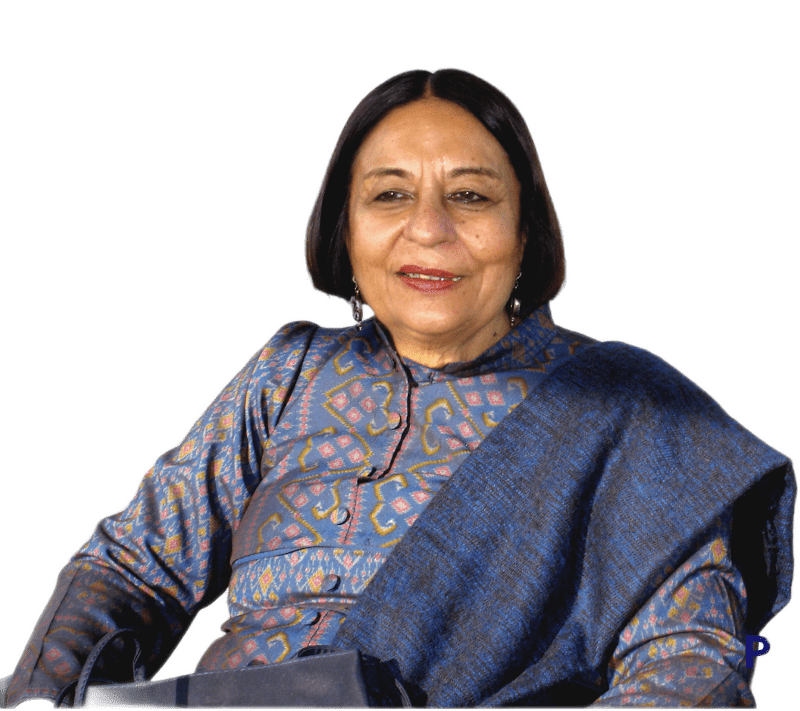
Public Health Uncoded with Dr. Saroj Pachauri on Impacts of Climate Crisis on Human Health
Guest: Dr. Antonio Galán, Scientist
Dr. Antonio Galan is a faculty member at the Instituto de Matemáticas, Universidad Nacional Autónoma de México, where he has served since 1999, following 18 years at the Instituto de Astronomía. He holds a degree in Physics and a PhD in Applied Mathematics from the University of London. Since 2005, his work and teaching have focused on the regional impacts of anthropogenic global warming, and he offers courses on this subject to undergraduate and graduate students. A recipient of the National University Distinction for Young Academics in Teaching (Exact Sciences), Dr. Galan is a member of several national and international scientific and sustainability advisory bodies. He also exemplifies sustainable living through a fossil-fuel-free, self-sufficient home.
Episode 12
Summary of episode 13 Dr. Galan, a renowned mathematician and climate scientist, shared his insights on how various factors caused by a warming planet are affecting our well-being. The conversation covered:
- Increased dangers from extreme weather: Rising temperatures lead to more frequent and severe weather events like heatwaves, floods, and droughts, causing injuries, illnesses, and deaths.
- Spread of waterborne and vector-borne diseases: Warmer temperatures and floods create ideal breeding grounds for mosquitoes and other insects, raising the risk of diseases like malaria and dengue fever.
- Malnutrition threats: Droughts and extreme weather disrupt food production and distribution systems, leading to malnutrition, particularly in vulnerable communities.
- Respiratory issues on the rise: Air pollution caused by burning fossil fuels aggravates respiratory problems like asthma, posing a serious health risk.
- Mental health concerns: The uncertain future caused by climate change is leading to increased anxiety, especially among children.
- The role of fossil fuels: Burning fossil fuels is a major contributor to air pollution and greenhouse gas emissions, directly impacting human health.
The discussion also explored how unsustainable practices like deforestation and industrial agriculture are worsening the situation. Dr. Galan mentioned the UN's call for a shift in eating habits, particularly reducing meat consumption, to lessen the environmental burden of livestock farming.

Public Health Uncoded with Dr. Saroj Pachauri on Climate Change and its impact on Childeren’s Health
Guest: Ms. Karina Weinstein, Program Strategy and Innovation Director, FXB USA
Karina Weinstein is a refugee from the former Soviet Union who defied her immigrant community’s expectations by pursuing a path in public service. Her work focuses on creating systemic change to facilitate access to opportunities for communities in the US and around the world. She designed and developed social impact programs and strengthened the capacity of grassroots organizations serving immigrant communities.
Episode 12
Summary of episode 12: In episode twelve of Public Health Uncoded, Dr. Pachauri invited an expert from one of the partner organizations FXB USA. Ms. Karina Weinstein also actively works with youth from the USA on climate action and mentors high school students to take sustainable action. She is the program strategy and innovation director and has worked with immigrant communities.
Ms. Karina Weisntein discussed the significant impact of climate change on children's lives, caregivers, and surrounding systems like parents and schools, highlighting the urgent need for awareness about its tangible health effects, such as asthma and allergies. Drawing from her personal experiences, she advocated for translating research into public health action, portraying climate change as a child rights crisis due to its disproportionate impact on children's developing bodies and limited resources. She highlighted concrete health impacts, including mental health issues, alongside the urgency for climate action to mitigate potential exacerbations of health issues. Prioritizing mental health, especially for children, she emphasized, with suggestions for immediate actions like comprehensive climate education and support from parents and healthcare providers. The guest speaker and Dr. Pachauri stressed that all sectors must recognize the link between climate change and health and incorporate this understanding into decision-making processes. Also, the importance of strengthening public health systems to provide support for children facing climate change impacts, as Ms. Karina highlighted by a personal story from an activist in Bangladesh, underlining the importance of empowering youth to advocate for policy change. Overall, the entire was based on a personal example highlighting the importance of focusing on children’s health in the context of climate change

Public Health Uncoded with Dr. Saroj Pachauri on Maternal Health
Guest: Dr. Aparajita Gogoi, Executive Director, Centre for Catalyzing Change
Dr. Aparajita Gogoi serves as the Executive Director of Centre for Catalyzing Change, a nonprofit that supports women and girls access rights and address equity, and is dedicated to creating lasting systems change at the grassroots, working with adolescent girls and women, by leveraging existing platforms to provide sustainable solutions.
She is also the National Coordinator of the White Ribbon Alliance for Safe Motherhood/India. The very successful whatwomenwant campaign was conceived and implemented in India under her leadership and she guided the global whatwomenwant campaign as the global co-chair. She holds a PhD (International Politics), from Jawaharlal Nehru University, New Delhi.
Episode 11
Summary of episode 11: In episode eleven of Public Health Uncoded, Dr. Pachauri invited the expert in the maternal health Ms. Aparajita Gagoi. She is also one of the leading authors who contributed to two books edited by Dr. Pachauri herself on COVID-19 Pandemic and Jounrey of Women Leaders.
Dr. Pachauri and Ms. Gogoi in the episode delve into the multifaceted issue of maternal health, highlighting its deep connection to gender discrimination and societal norms. Ms. Gogoi discusses the challenges women face in accessing quality healthcare and the importance of addressing gender-based power dynamics to improve maternal health outcomes. She reflects on despite the global progress made in reducing maternal mortality, recent data indicates a troubling stagnation in progress, emphasizing the need for renewed efforts. During the discussion successful strategies implemented in countries like India were also mentioned, emphasizing the importance of comprehensive approaches that address social norms, healthcare infrastructure, and the empowerment of women. Some recommendations were also made by Ms. Gogoi including investing in the health workforce, promoting respectful maternity care, and adopting a holistic, intersectoral approach to maternal health. Central to these recommendations is the imperative to amplify women's voices and involve them in decision-making processes to ensure that programs are designed and implemented with their needs and preferences in mind.

Public Health Uncoded with Dr. Saroj Pachauri on Safe Abortion
Guest: Dr. Beverly Winikoff, M.D., M.P.H, President of Gynuity Health Projects and Professor of Clinical Population and Family Health, Colombia Mailman School of Public Health
Dr. Beverly Winikoff, M.D., M.P.H., is the visionary behind Gynuity Health Projects, a global research NGO dedicated to advancing innovative approaches for enhancing women's reproductive health. With a rich background at the Population Council spanning 25 years, where she served as Program Director for Reproductive Health and Senior Medical Associate, Dr. Winikoff has been at the forefront of pivotal research. As the principal investigator for the U.S. trials of mifepristone, she also directed studies in India, Cuba, China, and Vietnam. Her impactful career focuses on reproductive choice, contraception, abortion, and overall women's health. A magna cum laude graduate of Harvard University, Dr. Winikoff holds an M.D. from New York University and an M.P.H. from Harvard School of Public Health. Before her tenure at the Population Council, she served as the Assistant Director for Health Sciences at The Rockefeller Foundation.
Episode 10
Summary of episode 10: In the episode tenth of the Public Health Uncoded, Dr. Pachauri invited her friend and ex-colleague Dr. Beverely Winikoff. Dr. Winikoff is the visionary behind Gynuity Health Projects, a global research NGO dedicated to advancing innovative approaches for enhancing women's reproductive health. Dr. Winikoff discusses the topic of abortion, focusing on its legalization in countries like India and the variations in access and regulations across different countries. In her conversation with Dr. Pachauri, she mentions that access to abortion services is influenced by both the medical system and legal/political factors. While some places allow midwives or nurses to provide abortion services, others restrict it to doctors. Highlighting the use of abortion pills she also mentioned that the technology has been available since the 1980s and has a high success rate in the first trimester. In her conversation, she also touches on the power and autonomy of women in making their own reproductive choices and the potential for ordering abortion pills online. It mentions that the availability and accessibility of abortion-related drugs vary depending on the country and jurisdiction, with complexities arising from legal, scientific, and political factors. Additionally, she and Dr. Pachauri discuss the ongoing debates and news surrounding abortion in the USA and the emergence of online platforms for purchasing abortion-related drugs. Overall, she provides an overview of abortion access, technology, and related issues in different parts of the world.

Public Health Uncoded with Dr. Saroj Pachauri on Persistent Organic Pollutants and Endocrine Disrupting Chemicals Health Impacts
Guest: Dr. Girija Bharat, Managing Director, Mu Gamma Consultants
Dr. Girija K Bharat, Managing Director of Mu Gamma Consultants, is a respected international expert with 30 years of experience in water quality. She specializes in Water Resource Management, Water Supply and Sanitation, Chemical Pollution Control, and Environmental Management. As a Ph.D. in Chemistry from LIT, Nagpur, and an alumna of esteemed institutions like Indian Institute of Technology (ISM) Dhanbad and George Mason University, USA, Dr. Bharat has published 128 research papers. Her contributions have earned her prestigious awards, including the Glory of India 2021 and Women Transforming India Award by NITI Aayog 2021. Global Environment Award 2020, Save The Environment Award 2021, Aqua Excellence Award 2020, Exceptional Women of Excellence Award of Women Economic Forum in 2019.
Episode 9
Summary of episode 9: In episode nine of Public Health Uncoded, Dr. Saroj Pachauri and our expert Dr. Girija Bharat discuss Endocrine-Disrupting Chemicals, their widespread presence, and their impact on human health.
During the conversation, Dr. Pachauri simplified the concept of Endocrine Disrupting Chemicals (EDCs) and discussed the different types of EDCs and Persistent Organic Pollutants. She highlighted their properties, presence, and impact on various species in the ecosystem, including humans.
Dr. Girija focused on the ubiquity of these chemicals and how they biomagnify, leading to health effects at different stages of life. She emphasized that the timing and level of exposure determine the nature and severity of the effects, including permanent damage during the fetal stage and detectable effects such as cancer, reproductive disorders, and type 2 disorders in adulthood.
The conversation then shifted to what the world is doing about Persistent Organic Pollutants and EDCs. It was mentioned that Europe and America have stricter laws and conduct regular research in this area to categorize chemicals based on their harmfulness. However, it was noted that India's efforts in this regard are either not effectively communicated or are slow. Dr. Girija explained the existing gaps in India's approach, including the participation in the global treaty Stockholm Convention on POPs and the National Implementation Plan (NIP) for chemicals.
India is working on a new batch of NIP, focusing on seven new chemicals. Additionally, a draft policy called CMSR (Chemical Management and Safety Rules) is being developed to replace the existing regulations. This policy is similar to the European Union's REACH (Registration Evaluation Authorization and Restriction of Chemicals) framework.
Overall, it was concluded that despite the efforts made, there is still a lot to be done to manage chemicals safely. The existing gaps include a lack of credible data due to limited research studies, insufficient resources and funds, non-compliance with existing policies, and the need for improvement in technical, administrative, and financial infrastructure.

Public Health Uncoded with Dr. Saroj Pachauri on Sargassum: A Brown Seaweed
Guest: Dra. Norma Patricia Munoz, Honorary Mentor, POP Movement
Dra. Norma Patricia Munoz holds a Doctorate in Oceanography Biology and has a remarkable career as an educator, having trained numerous Master's and Doctorate-level students. With 59 research projects and over 310 presentations to her name, she's a prominent figure in the field of marine resource management and environmental impact. Dr. Muñoz is a recognized member of various environmental organizations and currently serves as the President of the Climate Change Council of the Presidency of the Republic. Her extensive contributions have earned her numerous awards, including the "Great Woman of the 21 Century" distinction and the "Order of Academic Palms in the degree of Knight" from the French Republic.
Episode 8
Summary of episode 8: In Episode 8 of Public Health Uncoded, host Dr. Norma Patricia Muñoz, a distinguished marine biologist and educator, delves into the largely unknown issue of Sargassum, a brown seaweed, and its impact on climate and health. This emerging problem, widely unrecognized by the general public and the climate field, has been diligently researched by the POP Movement team, led by experts Dr. Pachauri and Dr. Norma. They shed light on the multifaceted nature of Sargassum, a threat spreading from the Caribbean Sea to the Atlantic Ocean, affecting more than 20 countries. Even the world's most pristine beaches are losing their allure, marine life is suffering, and coastal communities are largely unaware of the impending impact.
During their research, it was discovered that less than 1% of the population was aware of the heavy metals and toxins associated with Sargassum arrival. Further insights into Sargassum and its connection to climate change can be found in their forthcoming book titled "Climate and Health Nexus: Unraveling the Connections," featuring contributions from various researchers exploring the link between climate and health. This episode underscores the importance of addressing complex challenges in the face of environmental issues.

Public Health Uncoded with Dr. Saroj Pachauri on Health Communications
Guest: Ms. Anjali Nayyar, Executive Vice President for Global Health Strategies
Anjali Nayyar has more than 20 years of experience in global health issues. Her expertise lies in developing integrated program, advocacy and communications strategies aimed at impacting health policy and practice. She oversees the organization’s programs in emerging markets in Asia and Africa working through four offices and independent consultants. Prior to joining GHS, she served as Country Director for Program for Appropriate Technology on Health (PATH) in India. Preceding PATH, she worked with the International AIDS Vaccine Initiative (IAVI) for six years, where she served initially as India's Country Director and then as Vice President for Country and Regional Programs in New York. As Vice President, she led field operations and non-research and development programs in India, Brazil, South Africa, China, Kenya, Rwanda and Uganda. Anjali has also worked with the Population Council Regional Office, South and East Asia, as a Communications Specialist and Project Director for South and East Asia. She is a member of the Confederation of Indian Industry’s (CII) National Committee on Public Health; the Expert Group on Tuberculosis set up by a Political Forum called Global Coalition Against TB; the Pratigya Campaign Advisory Group and a member of the Uniting to Combat NTDs (National Tropical Diseases) Consultative Forum.
Episode 7
Summary of episode 7: In the episode seven of Public Health Uncoded, Dr. Saroj Pachauri and our expert in health communication Ms. Anjali Nayyar, discuss the field of health communication. They highlight the differences between medical and public health communication, noting that medical communication has historically received less attention, while public health has emphasized strong communication programs. They discuss how the landscape of health communication has evolved over time, with traditional media giving way to digital platforms like the Internet and mobile phones.
Ms. Anjali emphasizes the challenges of too much information and misinformation in health communication, particularly during the COVID-19 pandemic. She stresses the importance of experts and researchers playing a more prominent role in sharing accurate information and countering misinformation, especially on social media. Anjali also addresses the challenges and misinformation surrounding vaccines, emphasizing the need to build confidence in vaccination.
The conversation concludes with a distinction between information dissemination and health communication, highlighting that dissemination is the one-way targeted distribution of information, while communication involves promoting actions and behaviors through dialogue and broader messaging. The discussion underscores the critical role of communication in both medical and public health contexts and the need for addressing challenges in disseminating accurate information and countering misinformation.

Public Health Uncoded with Dr. Saroj Pachauri on Childhood Obesity
Guest: Ms. Seema Chandra, Creative Director at Editorji
Ms. Seema Chandra has a remarkable career spanning the media and wellness sectors. Her diverse roles include serving as the Creative Director at Editorji, an AI-based news and information app delivering daily content on lifestyle, global health, nutrition, environment, and technology. Additionally, she held the position of Managing Director at Smartcooky, an e-commerce venture focusing on health food and wellness products. Prior to these, she played a crucial role as the Food Editor in conceptualizing India's pioneering nutrition and health food show, "Good Food," aired on NDTV 24*7. Notably, she also contributed significantly to the launch of NDTV Good Times, India's first-ever lifestyle channel.
Ms. Chandra's academic dedication is evident in her achievements, culminating in a Masters in Global Public Health with a focus on SDGs from New York University in 2021. She previously pursued courses at the University of California, Berkeley, concentrating on Microeconomics, Political Economy, Rhetoric, and Organizational Behavior. Her undergraduate studies earned her a Bachelor of Arts with honors in Economics from Delhi University, where she specialized in Public Finance, Economic Systems, and Economic History.
Episode 6
Summary of episode 6: The podcast conversation features Dr. Pachauri and Ms. Seema Chandra discussing childhood obesity as a growing and serious issue in developing countries, with a focus on India. Ms. Seema brings her expertise in nutrition and communications to shed light on the causes, consequences, and potential solutions for this problem. They delve into various aspects of childhood obesity, including its prevalence, causes, urban and rural dynamics, economic factors, genetic influences, and associated health risks.
Ms. Seema highlights the alarming statistics of childhood obesity globally and in India, emphasizing the need for urgent attention. She explains that while efforts have been made to address malnutrition, childhood obesity has been largely overlooked. They discuss how changes in living conditions, urbanization, dietary habits, and lifestyle factors have contributed to the rise of childhood obesity. Genetic factors and maternal obesity during pregnancy are also noted as potential contributors.
The conversation explores successful global practices to combat childhood obesity. Ms. Seema Chandra cites examples from countries like Sri Lanka, Chile, and Bhutan, which have implemented food-based dietary guidelines, labeling regulations, and school-based interventions. She emphasizes the importance of scaling up innovative interventions, utilizing digital technologies, and creating behavior change strategies. They also discuss the connection between childhood obesity and non-communicable diseases (NCDs) like diabetes and cardiovascular diseases.
The conversation stresses the need for comprehensive research, evidence-based interventions, policy advocacy, and multi-sectoral collaboration to effectively tackle childhood obesity. Seema suggests leveraging mobile technology, digital interventions, and creative methods to engage and educate children, families, and communities. They conclude optimistically, noting that concerted efforts, policy changes, and industry involvement could lead to meaningful progress in combating childhood obesity and its associated health risks.

Public Health Uncoded with Dr. Saroj Pachauri on Sexual and Reproductive Health
Guest: Dr. John Townsend, Chair, Rotary Action Group for Reproductive, Maternal and Child Health Chair, Ethical Review Board (IRB), International Center for Research on Women
Dr. John W Townsend, Ph.D., is a highly accomplished expert in the field of reproductive health and maternal-child health. He has held various leadership positions at the Population Council, including Director of Reproductive Health and Director of Country Strategy. He has focused on policy development and designing interventions to enhance reproductive health service delivery systems with a particular emphasis on client rights. Dr. Townsend has also worked with organizations such as the Rotary Action Group for Reproductive, Maternal, and Child Health and the International Center for Research on Women's Ethical Review Board. He has served as chair of the Reproductive Health Supplies Coalition and the Institutional Review Board of the International Center for Research on Women. Additionally, he has been involved in numerous advisory boards and task forces related to reproductive health and has been a reviewer for several peer-reviewed journals. Dr. Townsend has extensive international experience, having worked and traveled in over 35 countries. He holds a Ph.D. in social psychology and has received multiple awards for his research and contributions to the field of reproductive health.
Episode 5
Summary of episode 5: In the ‘Sexual and Reproductive Health and Rights’ episode, Dr. Saroj Pachauri and our guest Dr. John Townsend, a Reproductive Maternal and Child Health Specialist, delve into the topic.
In this conversation, they covered a range of topics related to reproductive health and family planning. It begins with a discussion on the importance of sexual and reproductive health, focusing on the needs and desires of individuals, particularly young women, and the ethical considerations surrounding reproductive technologies.
The conversation then moves on to the statistics related to births and pregnancies, highlighting the risks associated with early and late pregnancies. Dr. John mentioned facts and analytical points reflecting on pregnancies before the age of 20 have a higher risk of mortality, while pregnancies after the age of 35 come with their own set of challenges.
The ideal time to have a child is considered to be between the ages of 20 and 30, but individual choices may vary. The importance of spacing pregnancies with a gap of two to three years is emphasized to ensure optimal child development and allow women to pursue other roles beyond motherhood.
Different methods of contraception for spacing and limiting pregnancies are discussed, including intrauterine devices, contraceptive implants, sterilization, and vasectomy. Dr. John emphasizes the role of men in contraceptive use and the importance of support for women's choices.
The conversation also touches upon global population trends, where the average number of children per family has been decreasing. Concerns are raised by certain groups about labor availability, but the speaker argues against coercion and stresses the importance of individual autonomy in reproductive decision-making.

Public Health Uncoded with Dr. Saroj Pachauri on HIV & AIDS
Guest: Mr. Rajiv Dua, Chief Executive - India HIV/AIDS Alliance
Mr. Rajiv Dua, who is a seasoned professional with over 33 years of experience in the health sector, has dedicated his career to improving health outcomes in various countries such as Bangladesh, India, Liberia, Nepal, The Philippines, and South Africa. In addition to his work in these nations, he has provided consultancy services in over 11 other countries. Mr. Dua's areas of expertise revolve around community health, marginalized populations, self-care, social marketing, developing cost-effective interventions, and risk management within the health sector. Furthermore, he has a keen interest in the ethical use of Artificial Intelligence (AI) in healthcare and actively follows developments in this field.
Episode 4
Summary of episode 4: In the ‘HIV/AIDS’ episode, Dr. Saroj Pachauri and our special guest Mr. Rajiv Dua, an HIV specialist, delve into the topic of the current status of HIV in India and globally.
The discussion begins with the recent UNAIDS report which highlights that HIV is in danger. Mr. Dua mentioned how the report highlights that HIV/AIDS is currently at risk due to a decrease in response rates both prior to and following the pandemic. He then talks about the issues that the report clearly brings out. The report highlights that in 2022, one million more infections were reported than anticipated. Despite this alarming trend, there exists only a fraction of the required funds to address the demand for testing, treatment, and medicine. Approximately 20-21 billion dollars are available, whereas the actual requirement stands at 30 billion dollars. Another concerning issue is that the global average for individuals who should be aware of their HIV status is 95%, leaving a 20% deficit. Thus, the challenge lies in improving this figure. Furthermore, a significant number of new cases have been observed among young people, indicating the need to shift campaign strategies and target specific groups since the existing approaches are proving ineffective. Therefore, a reassessment of communication campaigns is imperative.
Talking about the challenges he highlighted the trends in HIV-positive individuals being aware of their status and can have access to treatment, obstacles to increasing awareness, and how the media landscape has changed over time with traditional communication campaigns, such as TV and radio spots, being less effective among the current generation that is more engaged with social media platforms like Facebook and Instagram. He mentioned how treatment literacy is also one challenge. Although treatment regimens have improved, adverse effects and treatment fatigue can still deter individuals from adhering to long-term treatment. Also, how supply chains for antiretroviral drugs remain a weakness in the HIV/AIDS response. Along with the challenges he also mentioned the strategies that could be adopted to reach out to more people with revised campaigns.
Further, Dr. Dua emphasizes the need for a balanced approach between treatment and prevention. The shortage of resources is highlighted, with an annual shortfall of approximately $10 billion. He mentioned how the focus is on redirecting available resources to treatment programs, as suppressing viral load reduces the chances of transmission. However, he stressed that both treatment and prevention should work together rather than being pitted against each other. He suggests revisiting and revitalizing old prevention methods such as condom use and implementing newer prevention technologies like pre-exposure prophylaxis (PrEP). Citing decreasing prices of PrEP as an example of how increased demand and negotiation can lead to more affordable options, he proposed that governments should embrace these prevention tools and ensure reduced pricing through negotiations with pharmaceutical industries. But his major focus was on prevention, prevention through communication campaigns particularly to reach and educate the younger population, including adolescents and key populations, about the risks of HIV/AIDS.
He indicated that the overall observation of the report indicates a six percent decrease in resources allocated to combating HIV/AIDS over the past two to three years, despite an increase in the number of people affected by the disease. The required funding for HIV/AIDS programs is approximately $29 billion per year, while the currently available funds amount to only $21 to $22 billion per year. This shortage of resources has created a gap of around 25 to 30 percent globally, hindering efforts to end the epidemic by 2030 as promised. International donors have not kept pace with the growing need, resulting in a lack of political commitment and reduced funding.
Overall he emphasized that there is a need for increased political will, advocacy, and mobilization of resources to bridge the funding gap. The implementation of efficient strategies and the collaboration of governments, advocates, and HIV/AIDS organizations worldwide are necessary to adequately resource the response to the epidemic. Failure to address this issue could result in a resurgence of infections, especially among vulnerable populations.

Public Health Uncoded with Dr. Saroj Pachauri on COVID-19 Pandemic
Guest: Dr. Bulbul Sood, MBBS, Member of National Academy of Medical Sciences, MPH and Independent Senior Strategic Advisor
Dr. Bulbul Sood is a highly accomplished medical professional with extensive expertise. She holds an MBBS degree, MNAMS membership, and a Master of Public Health. Dr. Sood serves as an Independent Senior Strategic Advisor and has held leadership roles throughout her career, including former Country Director for Jhpiego-India and Centre for Development and Population Activities (CEDPA) India.
Dr. Sood's areas of expertise include repro-ductive, maternal, newborn, child, and ado-lescent health, non-communicable diseases, women's cancer, infectious diseases (including COVID-19), health system strengthening, and international health. She is a prolific writer with over 40 published articles and contributions to book chapters.
Episode 3
Summary of episode 3: In the ‘COVID-19 Pandemic’ episode, Dr. Saroj Pachauri and our special guest Dr. Bulbul Sood, a strategic advisor who closely worked on COVID-19 as a specialist, delve into the topic of India’s strategies against the COVID-19 pandemic.
She weaved together various elements that played a crucial role in India's successful strategies against the COVID-19 pandemic. Dr. Bulbul Sood shed light on several key factors that shaped India's approach, emphasizing the importance of intersectoral coordination and adopting a comprehensive, whole-government strategy.
By drawing upon previous experiences, such as the annual vaccination of 26 million children, and integrating new strategies rooted in scientific evidence, such as leveraging technology to foster collaboration between urban and rural areas, fostering strong leadership, and encouraging societal participation, she shed light on how India managed to transform the pandemic into an endemic situation. She also mentioned how encouragingly, the data indicates a significant decline in the rapid transmission of the virus and a decrease in hospitalization rates. But at the same time, she mentions that it is crucial for us to remain vigilant and take precautionary measures to safeguard ourselves against other diseases.

Public Health Uncoded with Dr. Saroj Pachauri on Gender
Guest: Ms. Madhu Bala Nath, Gender Specialist
Ms. Madhu Bala Nath is a Gender Specialist, who has worked on issues relating to gender, diversity and inclusion across development sectors with Swedish International Development Authority (SIDA), the United Nations, The International Planned Parenthood Federation (IPPF) and Engender Health, New Delhi, India.
Episode 2
Episode 1
Summary of episode 1 and 2: In the ‘Gender’ episode, Dr. Saroj Pachauri and our special guest Ms. Madhu Bala Nath, a gender specialist, delve into the topic of gender disparity. Ms. Nath brings her expertise from working with organizations such as the Swedish International Development Authority, the United Nations, the International Planned Parenthood Federation, and Engender Health, New Delhi, India.
The discussion begins by highlighting the surprising fact that developing nations like Rwanda and Namibia rank among the top 10 countries in terms of gender equality. Ms. Nath provides a comprehensive report card of the progress made in addressing gender disparity from the 1980s until today. As the layers of the topic are peeled back, the curiosity to learn more intensifies.
The second episode focuses on the involvement of men in addressing gender disparity and the impact of the COVID-19 pandemic on achieving the targets of Sustainable Development Goal 5. Ms. Nath and Dr. Pachauri explores the challenges faced and discusses the need for male peers to spread education about sexual and reproductive health. They also delve into understanding the male perspective and the setbacks caused by the pandemic, which affected women in terms of nutrition, social aspects, health, and economics. The execution of strategies suggested to mitigate the impact of COVID-19 were examined, as they played a role in hindering progress towards achieving SDG 5.
All the statistics mentioned by Ms. Nath during the podcast are covered in her chapter, titled "Cost of Ignoring Gender," in the book "Transforming Unequal Gender Relations: An Intersectional Perspective on Challenges and Opportunities." This book, edited by Dr. Saroj Pachauri and Dr. Ravi Verma, is set to be released later this year. The episode's enlightening discussion provides listeners with valuable insights and sparks further conversations about the challenges identified by Ms. Nath, urging a deeper understanding of gender equality and sexual and reproductive health rights.









